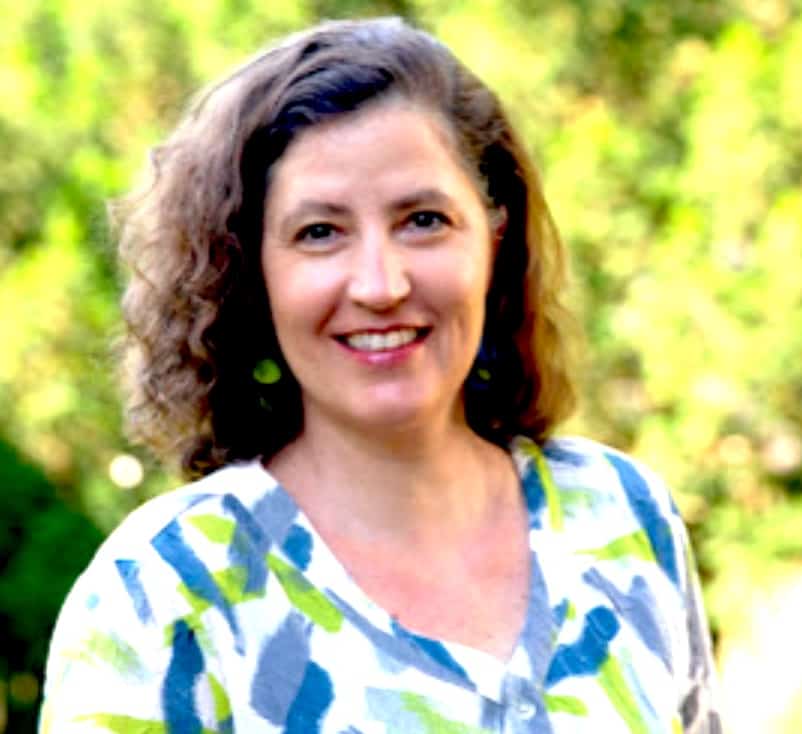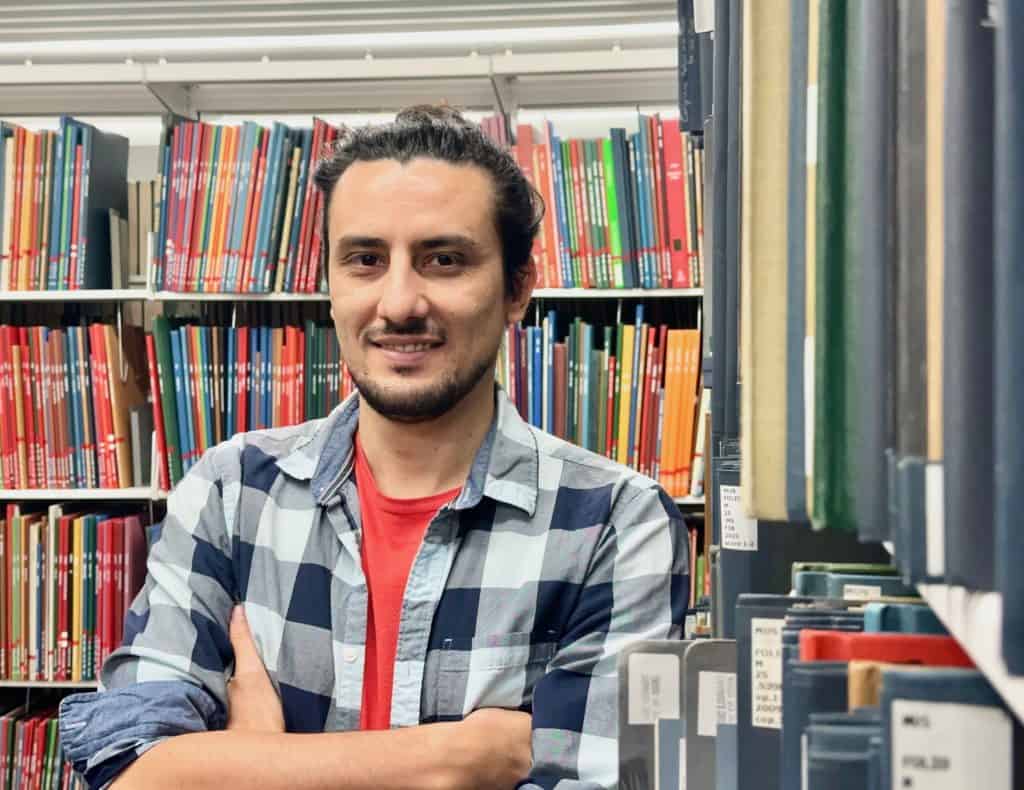Each year, the University of Iowa Libraries recognizes two graduate student employees for their contributions to the institution and the library or department in which they work. Recipients of an Academic Enrichment Award (AEA) are selected by a committee based on their application essays and the feedback of their supervisors, and winners receive a scholarship of $2,500. The winners for 2023-24 are Jennifer Miller and Ramin Roshandel. Below, Miller and Roshandel spoke to us about their work in the Libraries, what they’ve learned, and how they hope to apply the experience to their future careers.
Jennifer Miller is an MA student in the School of Library and Information Science and an MFA candidate at the Center for the Book. She was selected for her work in Preservation and Collections Care. Originally from Iowa City, the committee expressed appreciation for Miller’s sense of wonder and enthusiasm toward the materials in her care.

How has your work at the Libraries helped you develop important professional skills? How might you use those skills in your future career?
My work in Collections Care has helped me develop the professional skills needed to repair, restore, and preserve books in the circulating collection. In the future, I hope to work as a teacher or an academic librarian (or both) to facilitate research projects rooted in non-circulating items (special collections) including artist’s books and other primary resources.
Has there been anything that surprised you about working in a library?
What has surprised me most about working in a library is the scope of the collection. For example, I recently cleaned and wrapped multiple oversized volumes of the London Times dating from the 1860s to 1900. These daily printed newspapers had been opened flat and bound together with a publisher’s binding. As I prepared them for off-site storage in the Libraries annex, I tried to imagine who read the papers when they first arrived here in Iowa City. Today, we usually think of printed newspapers as ephemeral, but these paper artifacts show the magnitude of printed news that circulated in our society pre-1900. The culture of the time period was reflected in every printed page, and they seem to be quite valuable as primary source research items. Yes, we can probably find digitized copies online, but these provide evidence showing how materially specific our cultural history of news production really was. The paper, the printing, the industry—it is all there in those objects which are now in storage in the annex. Perhaps they are waiting to become part of someone’s future research study.
Ramin Roshandel, a PhD candidate in music composition from Iran, received an AEA award for his work at the Rita Benton Music Library. The committee were impressed by his dedication to his work and his attention to detail, as well as his thoughtful engagement with library users who called on him for assistance.
How has your work at the Libraries helped you develop important professional skills? How might you use those skills in your future career?
Through my work at the Music Library, I have been able to develop a great number of research skillsets. I have been using those skills and will use them in the future both
in my own research as well as in my music composition pedagogy as an instructor.
Has there been anything that surprised you about working in a library?
There have been a couple of things that surprised me at the library, but maybe the most interesting one is, one time when I was looking for a book for a patron, I ran into another book in the stacks: The Canon of the Persian Music, which is the book I studied throughout my undergraduate time. It was, of course, the English version of the book, but finding it there, thousands of miles away, among thousands of other scores and books, was very surprising. It is also interesting that that book is not the only book about Persian music in the Music Library.
